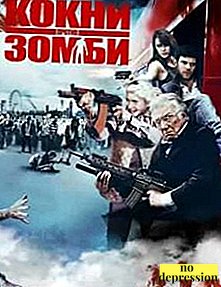Today, training is talked about everywhere.
Adults willingly visit them, following the recommendations of friends or their own will.
Do we need trainings for children? Is it too early for them to start close communication with psychologists?
What it is?

Not all adults seek to understand the essence of the existing problems and are ready to train a lot for skills.
What then to say about children who are not always even able to realize why they need to learn something for the good of the cause in the near or distant future?
How can we teach children useful skills in order to simplify contacts with society and work on tasks that require a lot of effort or a non-standard approach? Using children's desire and love for entertainment.
Training is something like a game according to the rules developed by experts in the field of psychology, pediatrics and pedagogy.
Therefore, with a professional approach to events, each of them will be of practical use.
A set of recommendations for actions that participants should try to follow has been sent. for children useful skills to solve existing or perceived problems in life.
What are we for?

Since learning is beneficial passes in game format, it does not cause spiritual protest.
After all, during training, it is usually possible, and often you need to actively communicate with your neighbors, move, laugh and not hold back emotions (up to reasonable limits, of course).
Due to the fact that the necessary skill is worked out in the game several times and at the same time the child seeks to use it in order to achieve results in the event, desired results short deadlines are achieved.
Trainings for different age groups differ according to the regulations. Depending on the main task, training goal can be directed to:
- Development of children skills peer communication or representatives of other age categories.
- Formation ability with comfort for themselves and without claims from others integrate into any society.
- The acquisition of desires and habits to resolve conflicts in a civilized manner.
- Leader habits developmentso as not to sharpen when you need to demonstrate your abilities to the world and close people.
- Acquisition of skill by willpower stabilize emotional background under difficult life circumstances.
Before conducting training with children each time personal task:
- To locate invited participants to the event to themselves.
- Take measures so that the majority of those attending the event have high spirits. Explicit psychological clips in individual wards may complicate the training and definitely will not benefit the children who have failed to psychologically relax.
- Explain to participants game conditions.
- Make sure that developments take place. according to the script.
- Take into account the moments when the situation strongly deviates from the planned scenario and unobtrusively influence the factor that caused it, if it is in the power of the lead.

When determining the presence of participants who still find it difficult to get rid of psychological clips at the moment, the trainer must find a way to work quickly with each of these guys separately to help them feel the desire to actively participate in training.
Moreover, active pastime does not always mean a lot of physical actions - the interest and tracking of developing events formed by other participants of the event is also an involvement in the process.
Let it happen when sitting in an empty corner, from where everything is perfectly visible.
Examples of games, exercises and tasks

Duration of classes for kids and children of the older age category is different.
Since the former fatigability is higher, and trainings, even if in a game form, should not cause discomfort and lead to an overstrain of the nervous system.
For preschoolers
Skill development reduce activity and listen to the speakerwhen there is, for example, a concert or a lesson necessary to form respect for the accepted group rules.
The coach sits the kids in a circle on the chairs, and then asks to recall the plot of the famous cartoon about a boy in the jungle.
Then focuses attention at the moment when one of the characters speaks, and the others, except for the harmful monkeys, listen to the speaker and do not interrupt him.
After all, if someone makes a statement, tells something, it means that he is sure that he is saying something important and unknown to the rest. And if you behave like a harmful monkey, then you will miss a lot of interesting things.
After the coach they ask each participant of the training, as far as it is clear why do you need to listen to the speaker and whether the questioned person wants to accept this rule for himself.

Lesson requires repeated repetition over a long period of time and the adoption of a symbol in the team, indicating the need to adhere to silence for a better understanding of the words of the speaker at the moment.
This is necessary so that in the future the team does not need to repeat this activity whenever the guys go into a rage and begin to show inattention during the period set aside for mastering an important lesson.
With many trainings it is necessary to divide the participants into two teams.
To gather groups with guys who are willing to cooperate with each other, rather than compete, it is recommended training called "River".
Turning to the guys, the coach announces a game in which all children must first line up in one common columnand then split into two small ones, imitating two sleeves of one large reservoir.
To facilitate the task of the kids, at the head of each of the small rivers must be put one by one. clear leader from the team - it will be easier for the rest of the children to choose the “leader” for whom they feel more sympathy.
So without long tests, you can make sure that further group classes take place with great enthusiasm and in a well-coordinated format.
Training for development feelings of self-worth and the ability to provide other effective support.

Children who are ready to play are shown a toy symbolizing a lost animal.
For drama and whipping up children's imagination, a psychologist can tell a little story about what happened to the little animals.
After that, he invites each of the children to alternately hug the toy, caress it and tell her that now she is completely safe and can count on their support.
For younger students
Training for the development of ability quickly generate associations.
The instructor explains that you need to break up into groups of three people. One It is entrusted with the duty to pronounce any word that can signify an action, an object or a phenomenon.
Second the representative of the group must have their say, not having a connection with the voice of the first.
The third child builds up a sentence of two declared words, linking two given statements. The field of this guys are changing roles.
On the development of empathy

The group of guys is divided into pairs, and then they are explained that they have to stand face to face and within a minute consider a partner, asking, if necessary, leading questions.
After each in turn must tell about the partner everything he remembers about the other or believes that the voiced is the place to be.
At the final stage, the psychologist is interested in the guys, how much do they agree with what they heard about themselveswhat was bothering them during the information gathering process or what worries the voice field of the opinions of others.
For a better infusion into the team
"Strange Mill"
Each participant needs tell about yourself and your favorite hobbies, but not with the help of words, but using only the capabilities of facial expressions and images created by changing the position of the arms, legs, body.
The classmates watching should try to guessthat he is trying to tell them about himself.
After the “performance” the child must necessarily say whether someone from the environment managed to understand what he wanted to declare himself.
"A relative of the princess Nesmeyany"

One of the participants is offered take the central chair.
The rest, remembering the legend that a person in front of them, who find it very difficult to laugh and just enjoy life, should try to change his mood with compliments and warm words addressed to him.
Best if used for business. praiserelating to personally "Nesmeyany." This may be achievements in studies, some traits of character and appearance.
Trainings for parents and children
When the problem of tensions between households in relation to each other can be applied training for improving relationships through the influence of the most reputable family member.
This is a rather aggressive technique for the psyche, especially if a person has a good imagination. But effective.
At the reception of a psychotherapist, the client is offered in colors to imagine what would happen to each member of his family, if all of a sudden, right now, on Earth there was a universal catastrophe simultaneously with a nuclear explosion in the area.
To control the situation, the psychologist during the training can ask leading questions, wonder what the ward is in relation to every person close to him.
In some cases, this hard emotional shake It gives especially good results if, after some time, an authoritative representative of the family shares his impressions with his household.
To understand the position of another person

When complaining about conflicts and the “clash of interests of generations”, the person who came to the consultation is invited to put a sheet of paper in front of him, and then imagine that the white rectangle is the second party to the conflict.
It is necessary not to cheat, put yourself in his place and look at yourself already through the eyes of another person.
What does he feel when we say some phrases, give advice or insist on our own.
Often, the first session is enough to understand the essence of the main conflict and its cause.
Training does not always work immediately for people with bad imagination who are used to unquestioning obedience of others.
But in most cases it allows you to quickly and bloodlessly resolve even the most complex conflicts, if the confrontation between two parties not a battle of uncompromising principles.
Communication training for children 5-7 years old:



